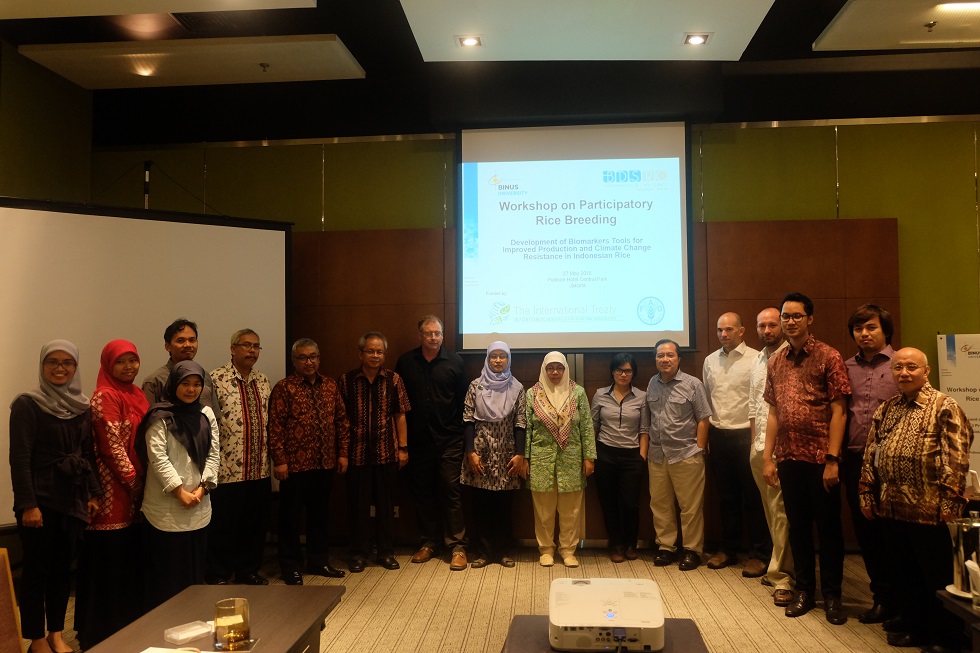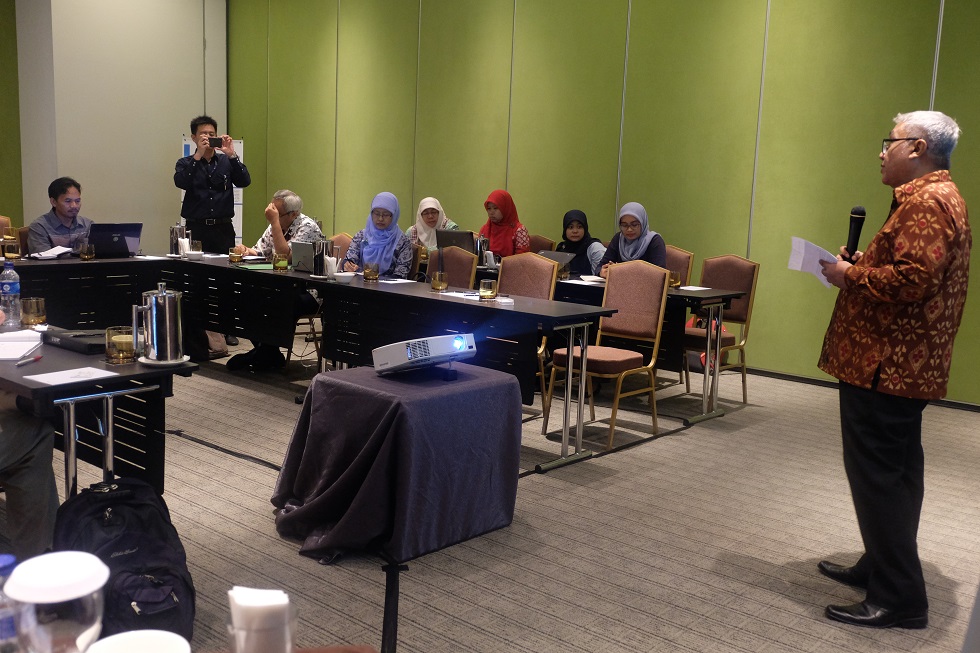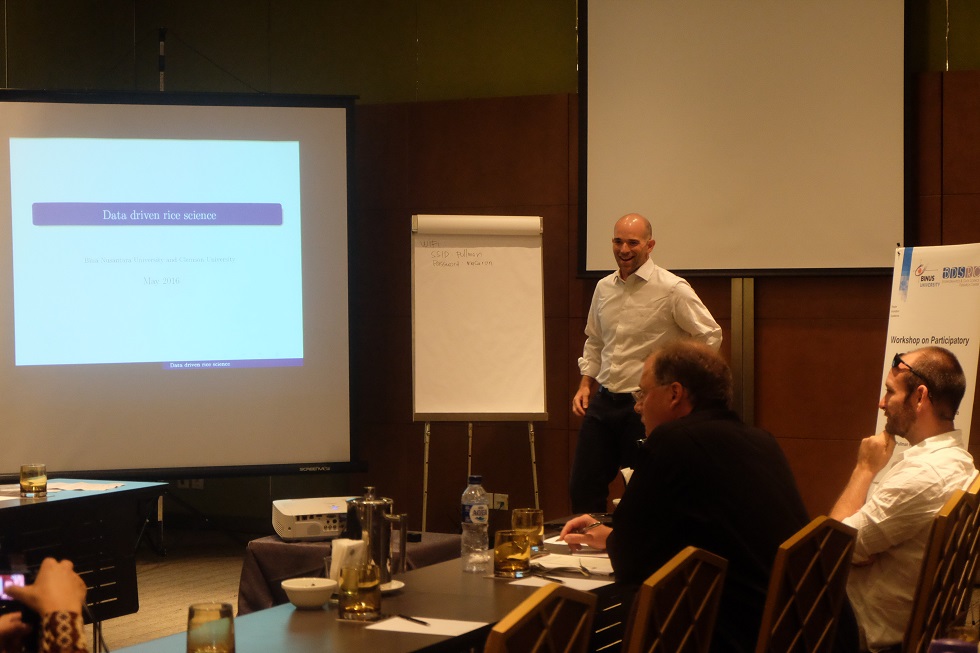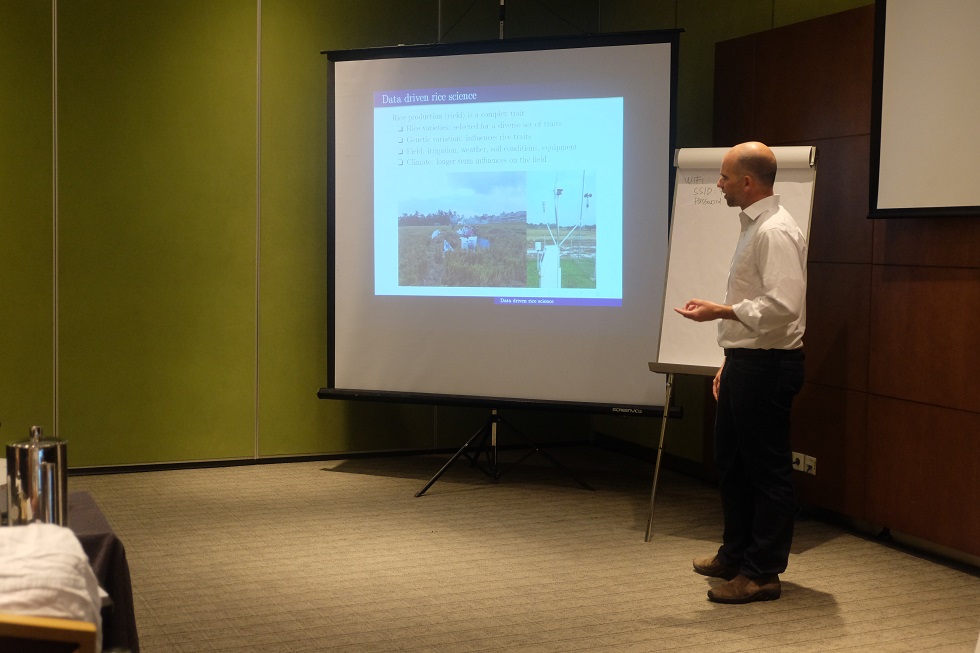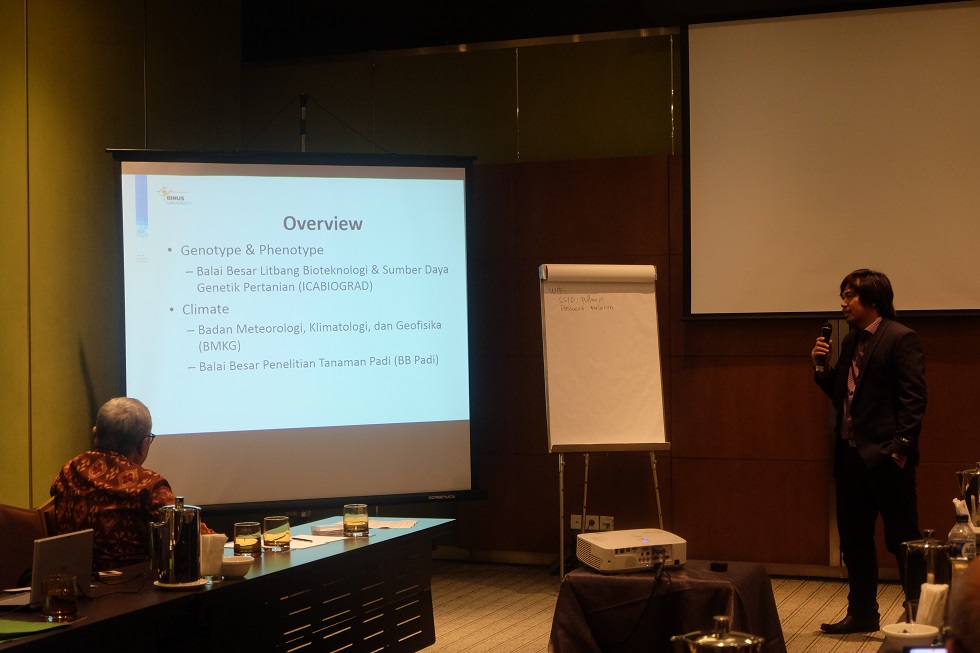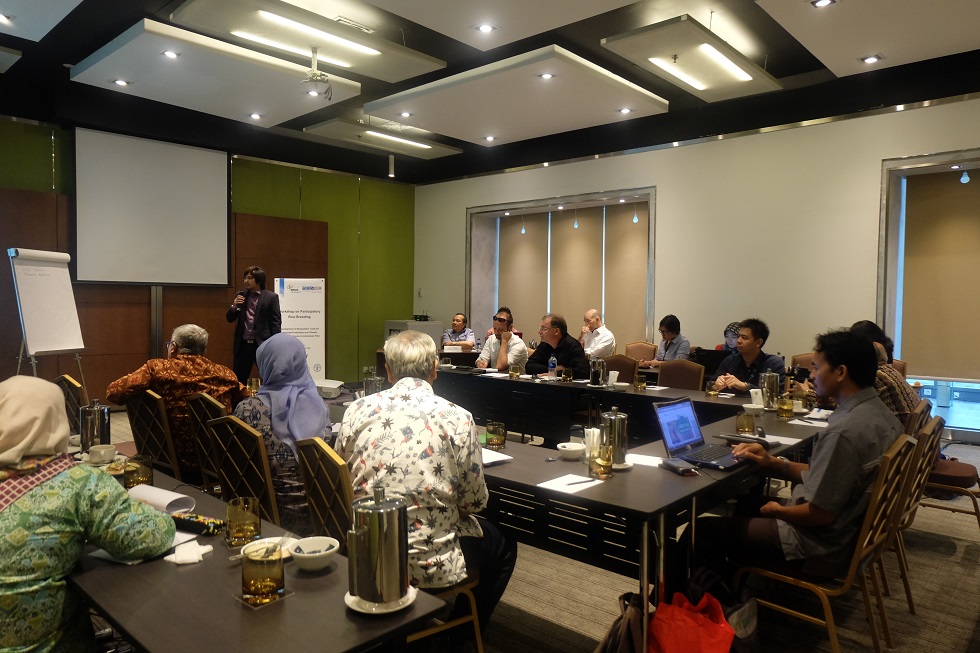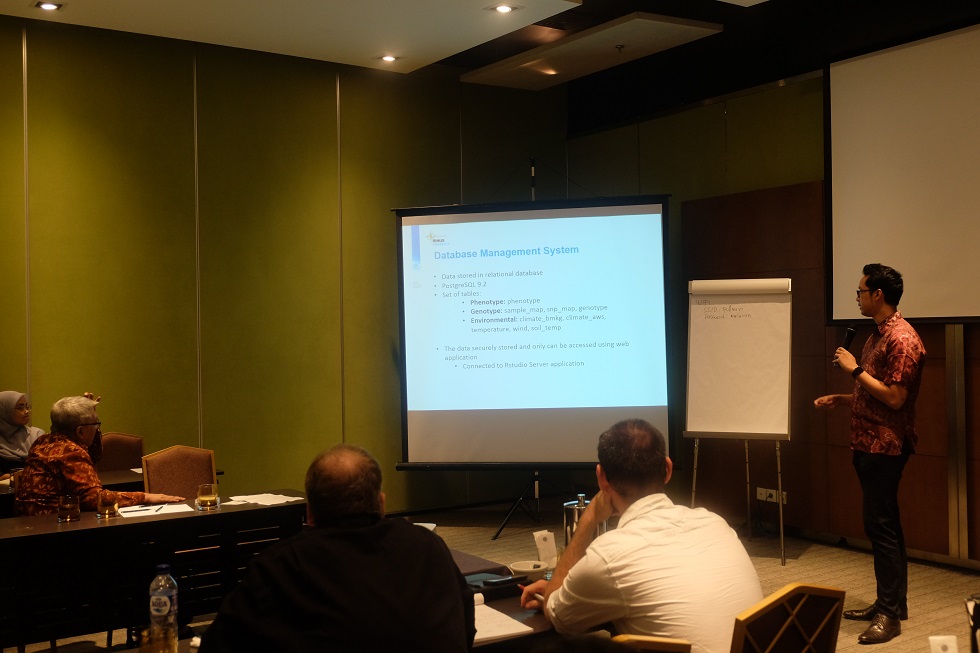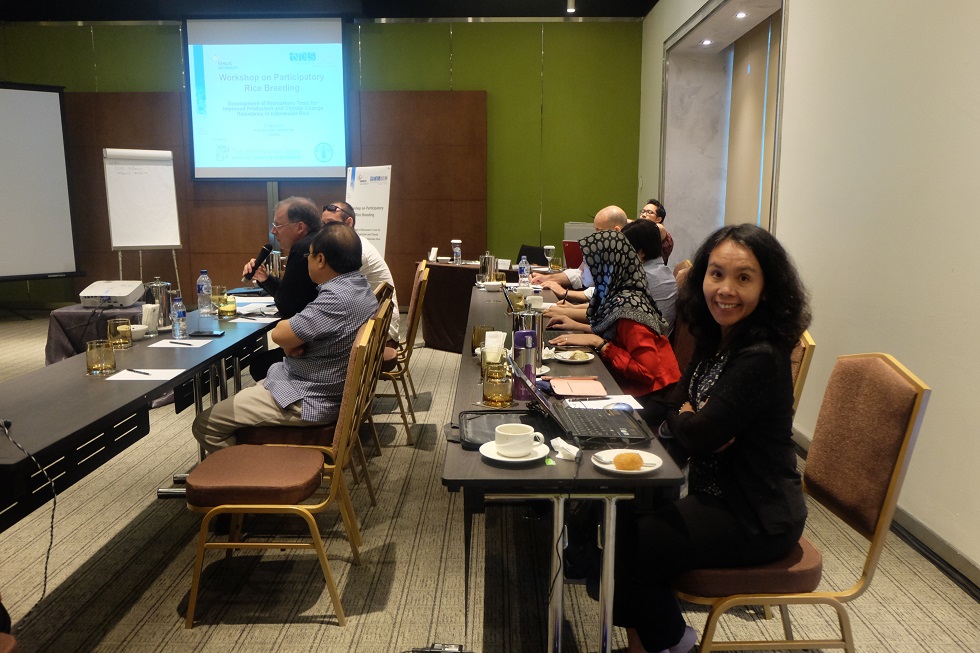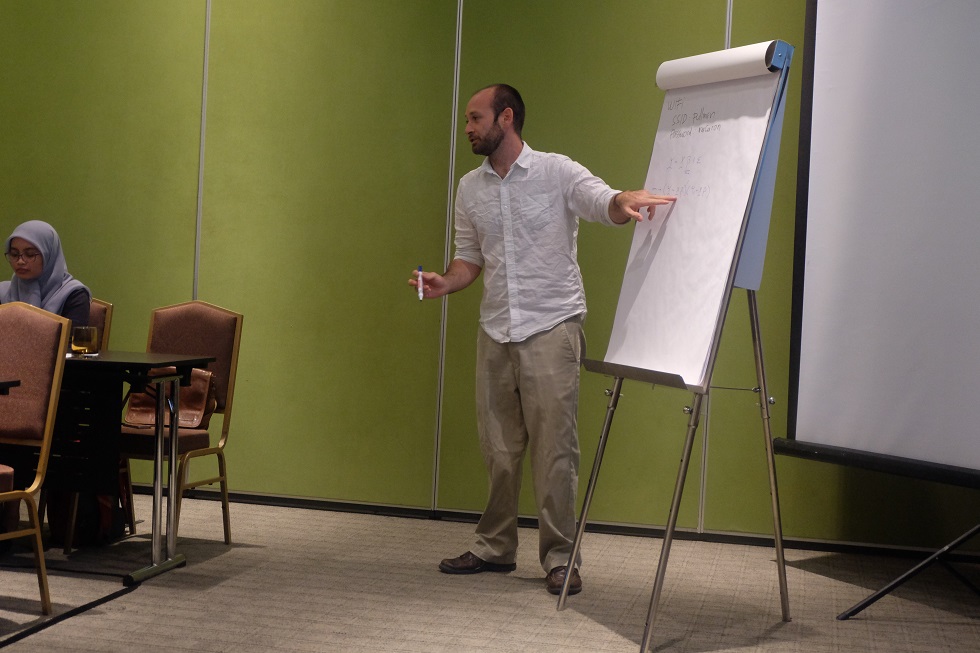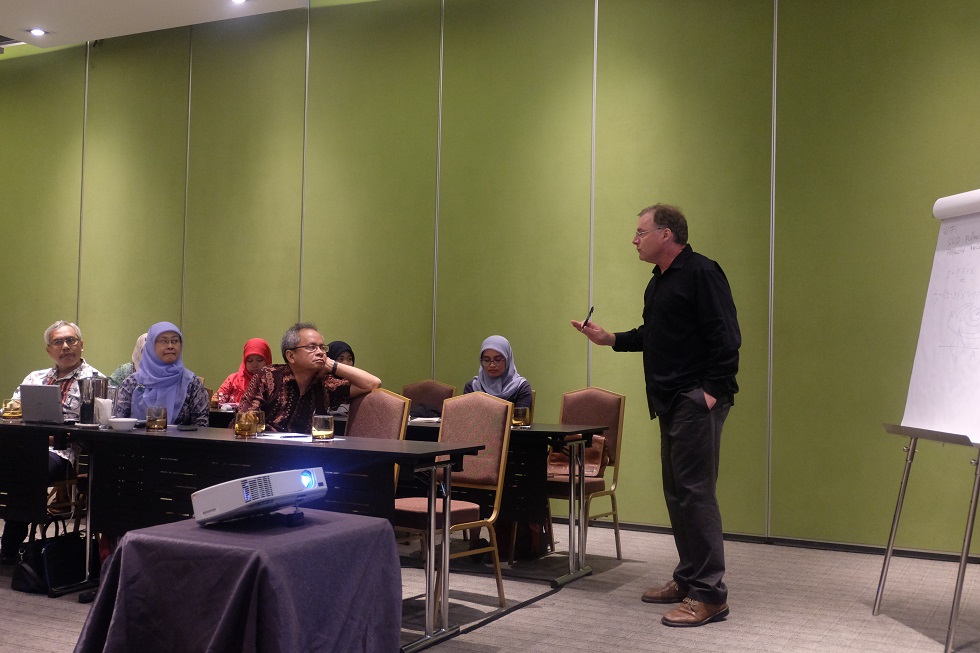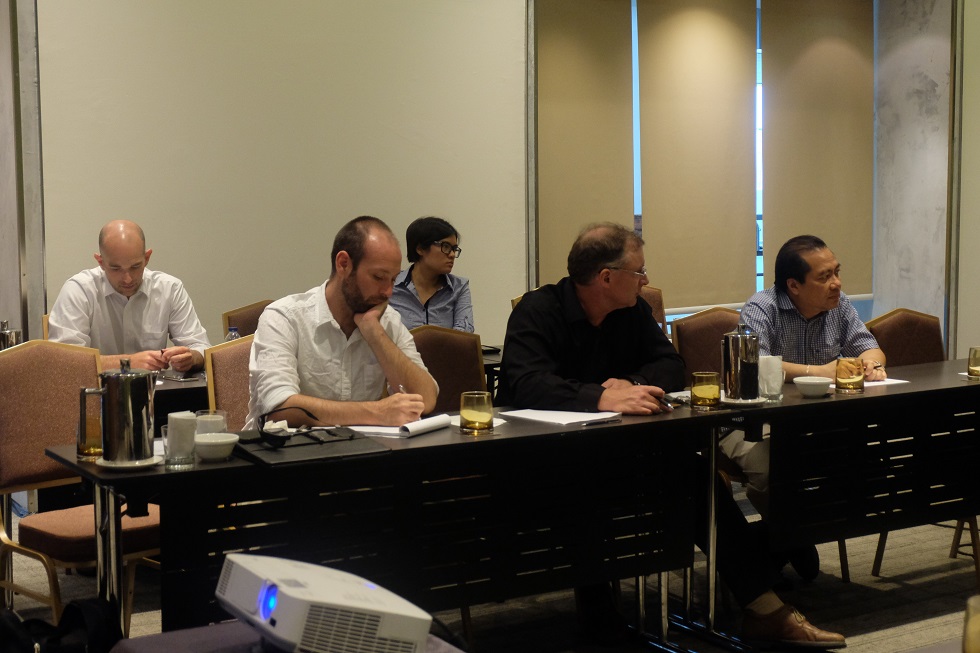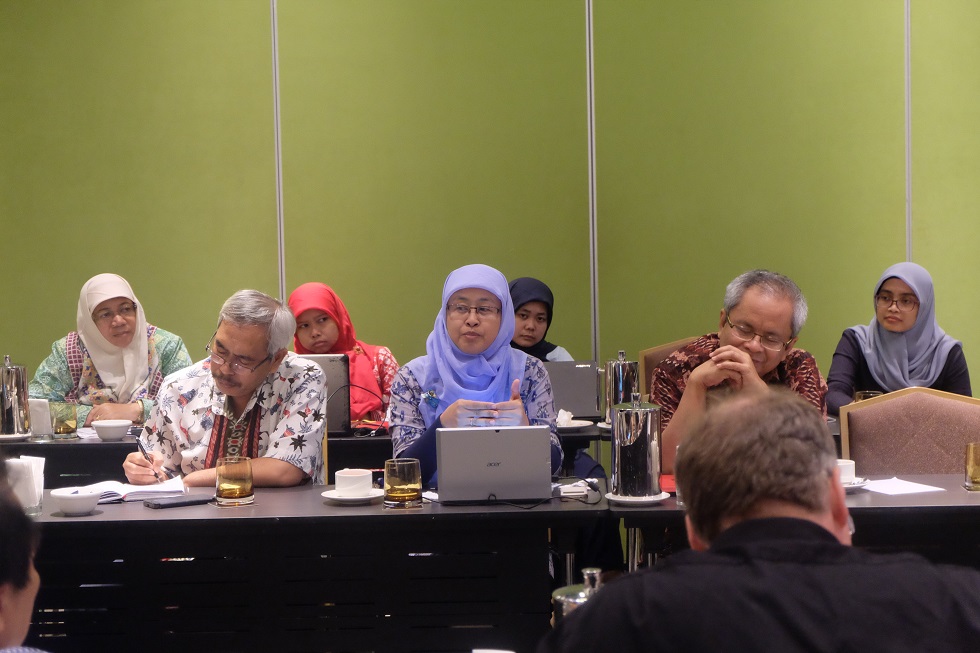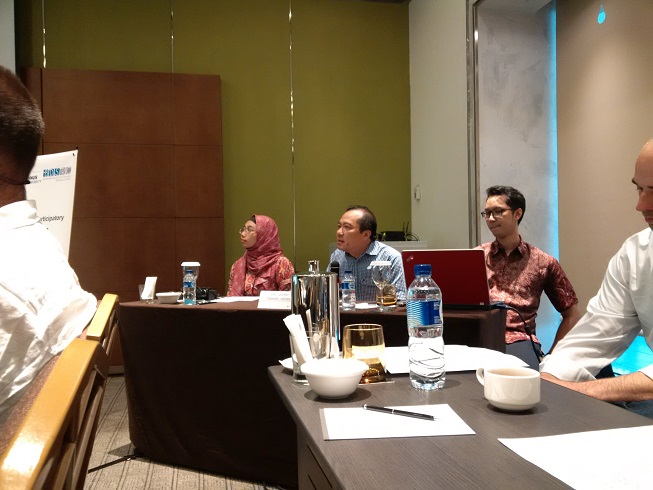Workshop on Participatory Rice Breeding
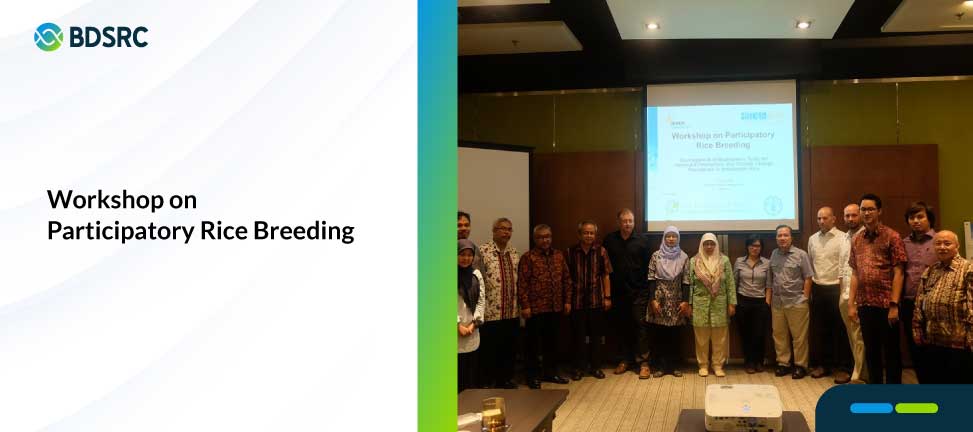
As one of the official milestones to the “Development of Biomarker Tools for Improved Production and Climate Change Resistance in Indonesian Rice” project, the “Workshop on Participatory Rice Breeding” is coordinated. The intention of this event is to discuss, thoroughly, progress made through on-going research, as a way to prompt and facilitate discourse to guide future directions on rice research and food security. This workshop was attended by the researchers from Balai Besar Litbang Bioteknologi & Sumber Daya Genetik Pertanian (BB Biogen), Balai Besar Penelitian Tanaman Padi (BB Padi), Balai Penelitian Agroklimat dan Hidrologi (Balitklimat), Bina Nusantara University, as well as two honored professors from Clemson University, Dr. Robert Lund and Dr. Christopher McMahan.
In the first session, Dr. Bens Pardamean as the principal investigator of “Development of Biomarkers Tools for Improved Production and Climate Change Resistance in Indonesian Rice” research grant presented a project overview of current research. The need for a biomarker development toolkit for molecular breeding along with specific objectives of the research was explained. In addition, the outputs of the research were clarified, which include Integrated rice database and web-based application, genome-wide and genome-environment-wide (GxE) analysis results, multivariate models, replication and prediction models, also final report, toolkit, and workshop.
The next session was coming from data management and analysis team where Dr. James W. Baurley presented the overview of overall analysis, Anzaludin Samsinga Perbangsa, MMSI informed the rice data, and Muhammad Fitra Kacamarga, MTI were talking about database. Furthermore, statistical framework and preliminary results were presented by Dr. Christopher McMahan. Dr. McMahan’s presentation covered marginal analysis-controlling for field effects, joint analysis for significant SNPs, and future modeling directions. Meanwhile, the next steps were outlined by Dr. Robert Lund. Dr. Lund suggested to expanding the data collection into temperature, precipitation, field elevation, water pH, fertilization measure, day of year of planting, number of days in field, type of field, and DNA sample for genotyping or sequencing. Other next steps are to track climate change and to develop rice genetic “fingerprint”.
This workshop was a success because all the participants actively engaged in knowledge sharing, data and methodology verification.

